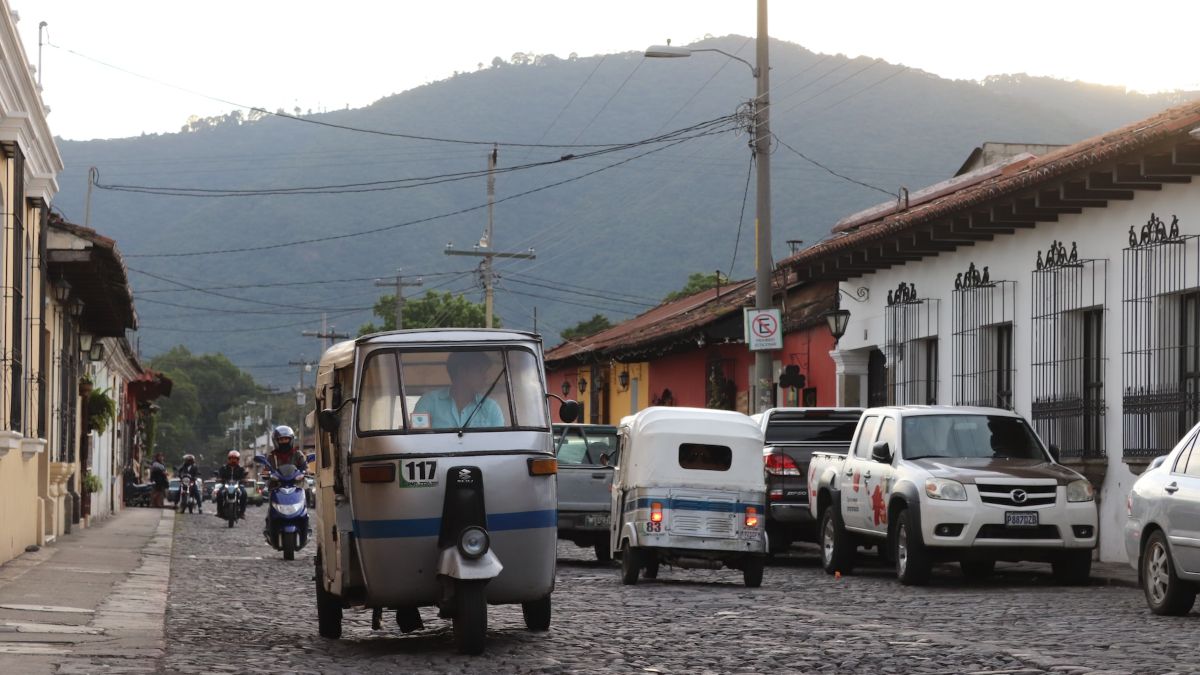This time last week, we were all still in shock from the Facebook/WhatsApp/Instagram outage of the previous day. We survived in the end, of course. But for many in Guatemala, the outage was far more serious. Nestor Quixtan explains why.
Last week’s Facebook outage caused major waves around the world.
Almost immediately, speculation swirled about a possible hack or data breach. In the past week, several versions have surfaced regarding the actual causes of the outage. In the end, though, it turned out to be an internal error.
In the outage’s midst, hundreds of millions of users worldwide were left bereft. While this wasn’t the first time Facebook went offline, it was surprising to find its partner services WhatsApp and Instagram offline, as well.
The simultaneous disruption of all three services raised serious concerns about Facebook’s infrastructure and security. As Facebook’s shares tumbled on Wall Street, users turned to alternative messaging services and social media sites. Services like Twitter and Telegram gained millions of new users.
Telegram founder says over 70 mln new users joined during Facebook outage https://t.co/bqPMgjkbMy pic.twitter.com/uH9Ys8smlu
— Reuters (@Reuters) October 5, 2021
But beyond entertainment purposes, Facebook and WhatsApp are critical lifelines to small and medium businesses in Central America.
The region overwhelmingly relies on Facebook and WhatsApp, so the waves felt by the rest of the world, felt like tsunamis here.
Given their “free” access, thousands of companies and entrepreneurs use social media and text messaging services for advertising. Moreover, small businesses use WhatsApp messaging to conduct day-to-day business.
So a slight disruption to social media or messaging services can prove catastrophic to a small business in Central America. Last week, thousands of small businesses around the region experienced a nightmare scenario during the outage.
According to World Population Review, there are 6.8 million registered Facebook users in Guatemala alone.
That puts Guatemala ahead of European nations like Belgium and Sweden. Guatemala doubles Honduras, El Salvador (with 3.4 million each), and Costa Rica (3.2 million users).
Indeed, Guatemala represents a significant market for social media giants. In a country of about 17 million people, roughly 40 percent have access to social media services.
Approximately 8.7 million Guatemalans use a text messaging service, with WhatsApp taking the lion’s share.
Guatemalans like Facebook Messenger too, but WhatsApp is by far the biggest draw.
All in all, there’s sizable market penetration for digital messaging services in Guatemala. This trend figures to continue as more and more businesses and entrepreneurs enter the market. It’s worth noting that entrepreneurship is on the rise in Guatemala.
According to 2019 figures, some 22% of Guatemala’s GDP comes from the informal economic sector.
By definition, the “informal” sector includes economic activity that is not officially registered anywhere. As such, most informal businesses pay no direct taxes. Nor do they generate any type of stable job creation.
This lack of formal employment does little to contribute to poverty reduction by boosting family incomes.
The Covid pandemic has pushed even more Guatemalans into the informal sector. According to some estimates, the pandemic will add another 5% to the already hefty underground economy.
That means almost 30% of the Guatemalan economy moves on off-the-books transactions. It’s this sector that thrives on the use of free digital messaging technology.
According to 2020 data, Guatemala reports an annual GDP per capita of around $4,490. This puts Guatemala into the world’s low-income bracket.
Initial estimates place losses related to last week’s Facebook outage at Q24.7m (more than $3 million), spread across 26,400 small businesses.
In a country ranked as one of the world’s poorest, a $3m loss represents a seismic impact on the country’s economy. You can see how devastating anything that hinders people from making a living, even for a few hours, can be.
Selfies, Cellphones, And Social Media In Guatemala (Or How To Hashtag Your Way Through Life)https://t.co/v159g8yy7F#CentralAmericanTwitter #socialmedia pic.twitter.com/eSM9bCkITe
— CentralAmericaLiving (@VidaAmerica) May 16, 2018
So why are Guatemalan businesses so reliant on social media and messaging services?
Well, there are three specific answers to that question.
First, the cost of running a business is prohibitive for most people.
Beyond the cost of setting up a shop, paying the bills, and hiring employees, insecurity further drives up the cost. Insecurity means hiring private security services and dealing with extortion rackets.
That means many entrepreneurs prefer to run their businesses from their homes. This setup requires the use of digital media instead of traditional advertising and communication channels.
Second, most small businesses don’t have the wherewithal to develop proprietary digital media communication channels like an app or website. They often also don’t have the money or the technical know how to find someone to do this for them. So they become overly reliant on free digital services.
Additionally, the pandemic has exacerbated this reliance on digital channels. As a result, small businesses see messaging services like WhatsApp as a lifeline to keeps them in business.
Third, there are few alternatives. Other messaging services like Telegram don’t have a significant presence in Guatemala. And although in North America and Europe no-one really uses Facebook anymore, down here people still do quite a bit more. Not too many regular Guatemalans “tweet”. Facebook and WhatsApp are still the big dogs.
To put the situation in context, consider this situation:
A small business sells lunches in their neighborhood. They advertise on Facebook and take orders on WhatsApp. They confirm deliveries and run their daily operations online. Ultimately, messaging on WhatsApp is more efficient than taking orders over the phone.
When WhatsApp went down, this business lost its ability to communicate with its customers. Now, the company was unable to take orders or confirm deliveries. In short, four or five hours of downtime represents an entire day of lost business.
What’s the solution?
Aside from investing millions into fostering online communication capabilities for small businesses, formal job creation seems to be the next best thing.
As the world staggers out from under its current crisis, governments can pivot toward economic recovery. Only time will tell where that pivot will lead.
Nestor Quixtan is a Canadian/Guatemalan economist, linguist, and writer. He lives in Guatemala City, Guatemala.




